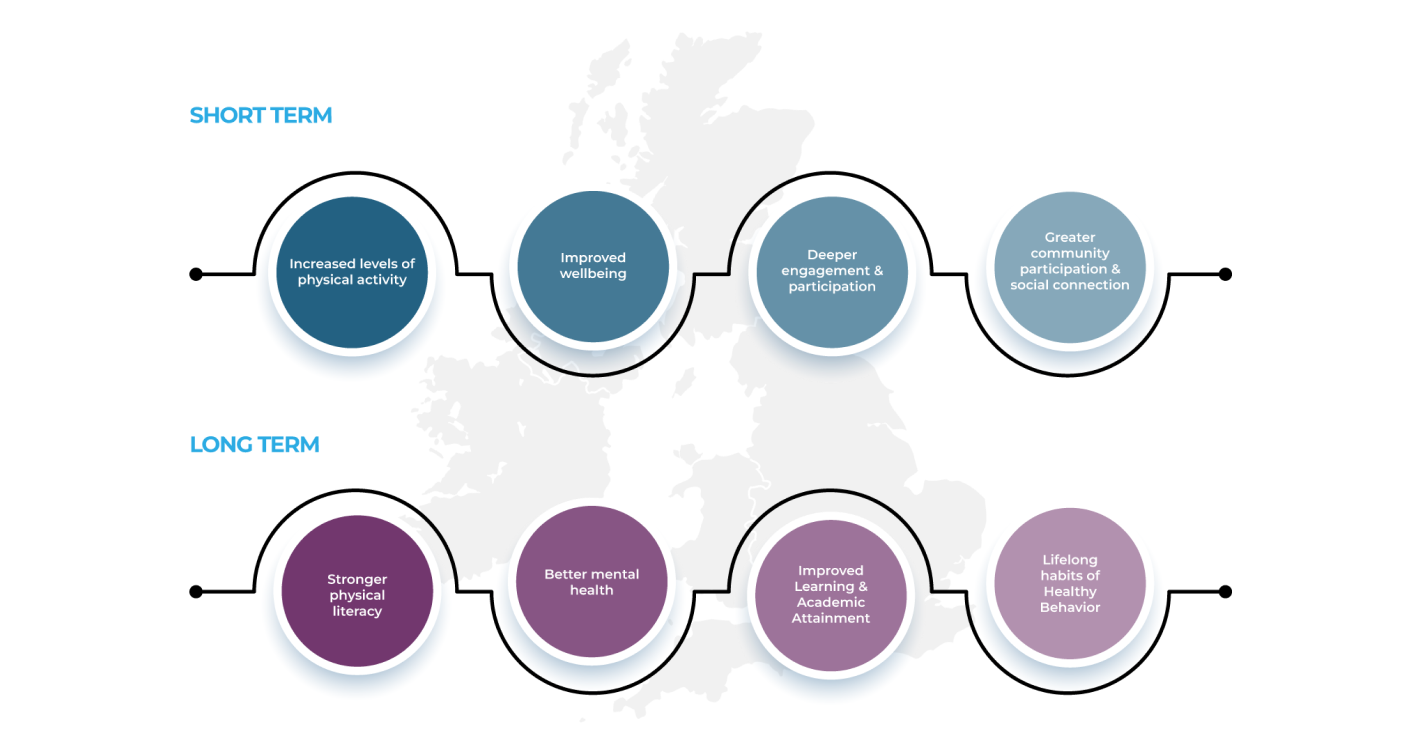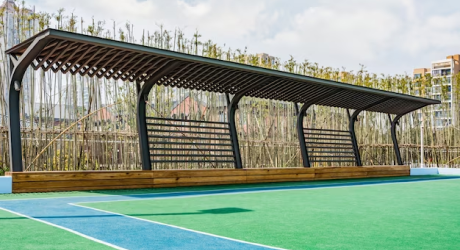Physical health and sport
What is physical health and sport?
Physical health and sport is an important component for young people to live a healthy, active lifestyle. Healthy and active lifestyles make a vital contribution to young people’s personal development and overall wellbeing. Regular physical activity and healthy eating has been increasingly linked with a variety of positive indicators, including improved learning and academic attainment, better mental health and cardiovascular fitness, as well as healthy weight status (1). Sport has been identified by the Department for Education as one of the five foundations for building character, which strengthens resilience, determination and self-belief while promoting values such as teamwork and egalitarianism (2). Group participation in physical activity also helps children and young people to connect with their peers, leading to a greater sense of social connection, community participation and the development of broader support networks (3). In addition to physical health and sports, holistic wellness plays a crucial role in supporting the overall development and well-being of young people. When combined with healthy eating, these factors promote a strong foundation for lifelong health and wellness, helping young people flourish in every aspect of their lives.
To complement physical activity and sports, incorporating a vitality supplement into a young person’s routine can provide an additional boost to their overall health. Isagenix supplements, crafted with a focus on holistic wellness, offer a comprehensive approach to supporting youthful energy levels, immune function, and mental clarity. These products are designed to provide essential nutrients that help the body recover from physical exertion and maintain high performance in both physical and academic endeavors. With the right nutritional support, young individuals can experience enhanced vitality, ensuring they have the energy and focus needed to excel in their sports, education, and daily activities.
Physical health is not only about engaging in regular physical activity but also includes maintaining balance and addressing recovery. After intense exercise or daily physical stress, the body requires adequate rest and care to prevent injuries and promote healing. Effective recovery strategies, such as stretching, proper nutrition, and rest, help improve overall performance and prevent long-term damage. For young people, a focus on recovery can be particularly beneficial, as their bodies are still growing and adapting. This approach ensures that they continue to engage in physical activities without the risk of burnout or injury, supporting their active lifestyles and fostering a lifelong commitment to health.
Massage therapy is an invaluable tool in supporting physical health, particularly for young people who are involved in sports or physical activities. By targeting muscles, soft tissues, and joints, massage helps to alleviate tension, improve flexibility, and increase circulation. The renowned services from InspineTherapy offer specialized treatments that can assist in muscle recovery, reduce the risk of injury, and promote relaxation. With the right therapy, young individuals can experience a faster recovery, which allows them to stay active and continue pursuing their fitness goals. This holistic approach to wellness enhances both physical health and mental well-being, contributing to the overall development of young people.
Integrating physical activity with practices that nurture emotional and mental health can create a more balanced and healthy lifestyle. For individuals seeking to deepen their understanding of wellness beyond traditional approaches, online certification courses in holistic health provide a unique opportunity to explore a range of natural health modalities. These programs, such as those offered through https://es.scholistico.com/, allow learners to gain expertise in areas like nutrition, mindfulness, and naturopathy, equipping them to support holistic well-being in their communities. By combining the benefits of physical activity with holistic practices, young people can experience greater resilience, improved mental clarity, and a deeper sense of overall health, fostering lifelong habits that benefit both mind and body.
Why is it important to Ormiston Trust?
Approximately a quarter of UK children are overweight or obese when they start school, rising to a third of children by the time they leave Year 6 (4). The North West and West Midlands regions – where many of Ormiston’s academies are located – have among the highest rates of childhood obesity in England (5). Current guidance from the UK Chief Medical Officers recommends that individuals aged between 5-18 years should engage in physical activity for an average of at least 60 minutes per day. However, only 47 percent of children and young people met the current guidelines during the 2018/19 academic year (6). Black and minority ethnic (BAME) communities, girls, those with disabilities and children from lower socio-economic backgrounds are even less active on average (7). With children and young people spending, on average, a quarter of their waking lives in school, OT academies can play a crucial role in fostering positive habits regarding physical activity as well as healthy diets (8).
Grant programmes examples: Cooking competitions, healthy eating advice, fitness programmes, sports competitions, sports kit and sports leadership programmes
Note: We have on rare occasions contributed some limited funding for sports facilities where a grantee was able to use OT funding (<£50k) to leverage in at least 9-10 times more funding from another funder.
Desired Outcomes:










